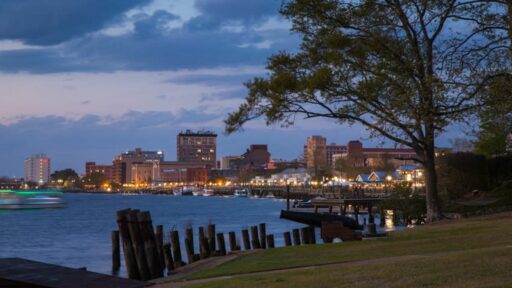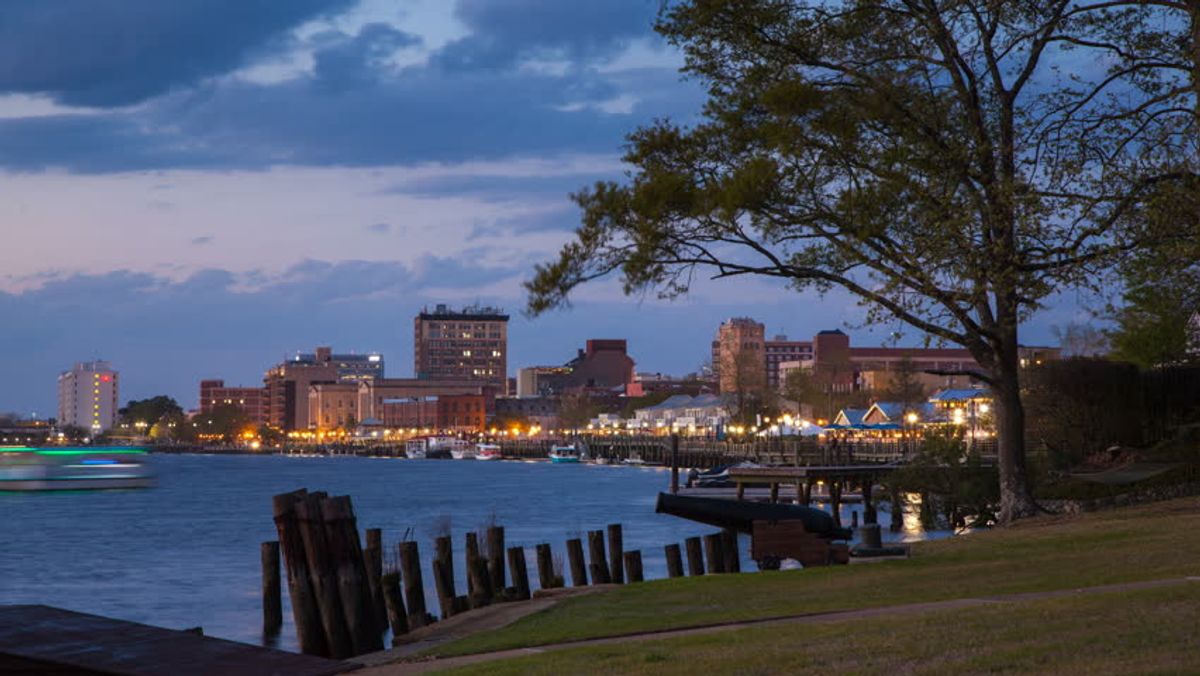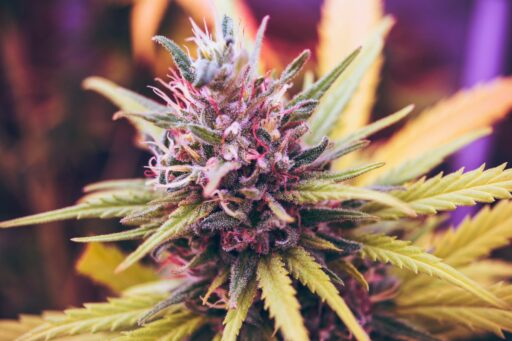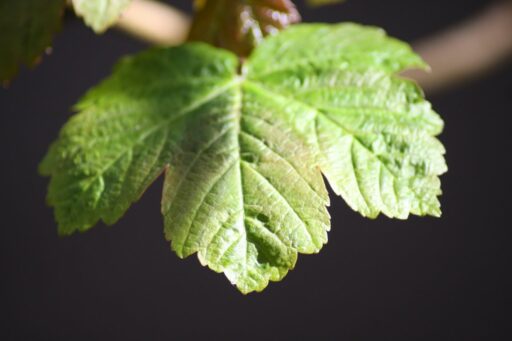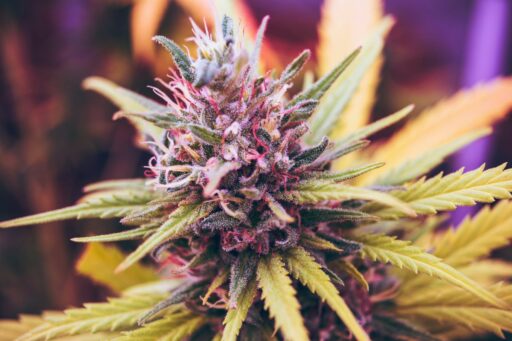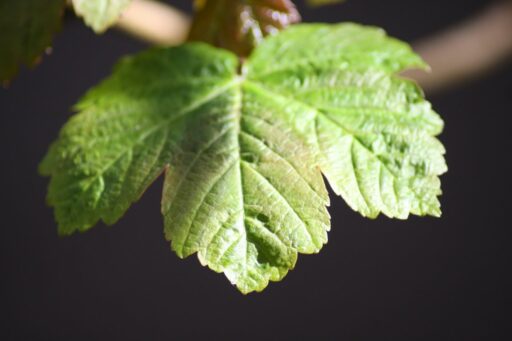North Carolina’s marijuana laws are a complex web of decriminalization, medicinal debates, and tribal sovereignty. While the state has decriminalized possession of small amounts of marijuana and legalized hemp extracts, including Delta-8, Delta-10, and Delta-11, Delta-9 THC remains a contentious issue. The Eastern Band of Cherokee Indians has taken a progressive stance, moving towards legalization within their territory, which could have broader implications for the state. However, the state’s medical marijuana efforts have faced significant hurdles, and federal opposition, particularly regarding highway funding, continues to challenge the progress of cannabis reforms in North Carolina.
Key Takeaways
- North Carolina has decriminalized possession of up to 42 grams of marijuana and legalized CBD and hemp extracts; however, Delta-9 THC’s legality remains debated.
- The Eastern Band of Cherokee Indians has voted to allow recreational marijuana sales, which could influence statewide legalization efforts.
- Medical marijuana faces legal challenges in North Carolina, with doctors at risk and the state repeatedly rejecting therapeutic cannabis legislation.
- Federal opposition, such as Congressman Chuck Edwards’ Stop Pot Act, threatens to withhold highway funding from tribes legalizing marijuana.
- Resources for understanding North Carolina’s marijuana laws are available from NORML, NCSL, and ProCon.org, covering various aspects of cannabis legislation.
Overview of North Carolina Marijuana Laws

Decriminalization and Legal Status
In North Carolina, marijuana remains illegal for recreational use, but the state has taken steps towards decriminalization. Possession of small amounts of marijuana is not treated as a criminal offense, but rather as a misdemeanor subject to fines. This approach reflects a growing trend in the United States where states are shifting their focus away from strict enforcement of marijuana laws.
- December 2014: Possession of up to 1 oz (28 g) was decriminalized.
- April 16, 2015: Use of low-THC CBD oil legalized for medical use.
- January 2019: Medical use was legalized.
While full legalization has not been achieved, the state’s stance indicates a more lenient attitude towards cannabis, with an emphasis on reducing the penalties associated with its possession. The legal landscape is continually evolving, with recent discussions around further decriminalization and potential legalization measures.
Hemp and CBD Regulations
In North Carolina, the regulations around hemp and CBD are evolving, reflecting the broader national trend towards acceptance of hemp-derived products. Industrial hemp that meets the USDA’s testing requirements and contains less than 0.3% Delta-9 THC is federally legal. This has opened the door for innovative hemp products with high THCA levels, such as THCA flower and blunts, to enter the market.
While the USDA’s jurisdiction ends post-harvest, the DEA’s oversight begins, focusing solely on Delta-9 THC levels in finished products. This regulatory gap allows for high THCA products to exist in a somewhat grey area of the law.
However, state laws can differ significantly, and North Carolina consumers must navigate a patchwork of regulations. For instance, while the DEA does not consider THCA levels for federal law, several states have implemented "Total THC" testing laws that include THCA content. It’s crucial for consumers to stay informed about the legal status of cannabis in North Carolina, as changes occur frequently and can impact the legality of certain hemp products.
Delta-8, Delta-10, and Delta-11 Extracts
In the evolving landscape of cannabinoid products, Delta-8, Delta-10, and Delta-11 extracts have emerged as popular alternatives to traditional Delta-9 THC. These hemp-derived cannabinoids are available in various forms, including vapes, edibles, and concentrates.
North Carolina’s stance on these compounds is influenced by the Federal Farm Bill of 2018, which de facto legalized hemp extracts containing less than 0.3% Delta-9 THC. As a result, products like Delta-8 gummies and carts have found a legal gray area in the state.
While Delta-9 THC remains a contentious issue, the acceptance of Delta-8 and related extracts reflects a shift towards a more nuanced approach to cannabis regulation.
Despite this, the legal status of these substances can vary at the local level, with enforcement often dependent on the discretion of law enforcement officers.
The Eastern Band of Cherokee Indians and Cannabis Legalization

Tribal Council’s Stance on Marijuana
The Eastern Band of Cherokee Indians has taken a progressive stance on marijuana, recognizing the potential economic benefits and autonomy it brings to their community. The tribal council voted in May 2021 to allow possession of up to one ounce of marijuana, paving the way for further legislative changes.
The decision to legalize marijuana within the Qualla Boundary signifies a pivotal shift in the tribe’s approach to cannabis policy, setting a precedent for the state of North Carolina.
Following the council’s decision, a referendum in September 2023 was approved by voters, directing the tribal council to permit recreational marijuana sales. This move could have significant implications for the state’s legalization efforts, as it introduces a legal marketplace for recreational cannabis within North Carolina’s borders.
Concerns have been raised about the pace at which the tribe is moving towards a fully regulated market, especially as the medical marijuana policies are still under development. The medical cannabis program is expected to issue numerous medical marijuana cards to North Carolinians, contingent upon doctor approval.
Recreational Sales and the September 2023 Referendum
In the wake of the Eastern Band of Cherokee Indians’ decision to legalize recreational marijuana within their jurisdiction, a significant referendum is set for September 2023. This vote will determine the future of recreational cannabis sales on tribal lands, potentially setting a precedent for the rest of North Carolina. The referendum’s outcome could influence the state’s approach to marijuana legislation.
While the Cherokee are poised to become trailblazers in the state for legal pot sales, they face considerable opposition. Federal legislators are pushing back against the Cherokee’s move to legalize recreational pot in their Qualla Boundary territory in Western NC. The tension underscores the complex interplay between tribal sovereignty and state and federal laws.
The referendum represents a pivotal moment not just for the Cherokee, but for the broader legalization movement within North Carolina. Its implications extend beyond commerce, touching on issues of autonomy and the potential reshaping of state drug policy.
Implications for Statewide Legalization Efforts
The Eastern Band of Cherokee Indians’ approach to cannabis legalization could set a precedent for the rest of North Carolina. If the September 2023 referendum results in the legalization of recreational sales on tribal lands, it may catalyze a broader discussion on statewide policy reform.
- The referendum’s outcome could influence public opinion and political will.
- It may prompt state legislators to reconsider the economic benefits of legalization.
- Legalization on tribal lands could serve as a case study for regulatory frameworks.
The ripple effect of the referendum could extend beyond economic implications, potentially shaping social norms and law enforcement practices across the state.
While the referendum is a localized event, its implications for statewide legalization efforts are significant. The potential shift in public perception and the economic impact of a successful cannabis market within the state could be the tipping point for North Carolina’s marijuana laws.
Medical Marijuana in North Carolina

Current Legal Challenges for Doctors
In North Carolina, physicians face a complex legal landscape when considering the medical use of cannabis for their patients. The lack of clear legal guidelines creates a precarious situation for healthcare providers. Despite the potential benefits, doctors are often hesitant to discuss or recommend cannabis due to the fear of legal repercussions.
- Court cases impacting medical cannabis discussions:
- Leary v. United States
- Conant v. Walters
- Gonzales v. Raich
The intersection of federal law and state prohibitions complicates the ability of doctors to provide comprehensive care, including discussions about the therapeutic use of cannabis.
The current legal framework does not only affect the doctors but also the patients who might benefit from medical cannabis. The delay in establishing a clear legal path for medical cannabis use in North Carolina means patients continue to face barriers in accessing potentially life-altering treatments.
State Rejection of Therapeutic Cannabis Legislation
In a move that has disappointed many advocates for medical marijuana, North Carolina has maintained a firm stance against the legalization of therapeutic cannabis. Despite evidence of health benefits and a growing acceptance in other states, the legislature has repeatedly declined to pass bills that would allow doctors to prescribe marijuana for medical purposes.
The rejection of medical marijuana legislation has significant implications for patients seeking alternative treatments. Many are forced to either go without or consider relocating to states with more progressive cannabis laws. The table below outlines the current status of medical marijuana bills in North Carolina:
| Year | Bill | Outcome |
|---|---|---|
| 2021 | SB 711 | Rejected |
| 2022 | HB 401 | Not Passed |
| 2023 | SB 58 | Stalled |
The consistent refusal to acknowledge the potential therapeutic uses of cannabis reflects a broader hesitation within the state’s political landscape to embrace a more liberal approach to marijuana laws.
While the future of medical marijuana in North Carolina remains uncertain, the continued efforts by advocates and some lawmakers suggest that the conversation is far from over. The state’s position contrasts sharply with the dynamic shifts occurring elsewhere, as highlighted by the recent legislative changes in states like Florida and Iowa.
The Future of Medical Marijuana in the State
The trajectory of medical marijuana in North Carolina remains uncertain, with legislative efforts facing significant hurdles. The state’s reluctance to embrace therapeutic cannabis legislation has left many advocates and patients in a state of limbo. Despite the challenges, there is a growing recognition of the potential benefits of medical marijuana, which could influence future legislative attempts.
- 2023: Senate Bill 47 to legalize medical use signed into law.
While the passage of Senate Bill 47 marks a milestone, the implementation and expansion of the law will be critical to its success. The medical community continues to explore cannabis as a viable treatment option, with researchers like Jean Talleyrand contributing valuable insights into its medicinal properties.
The evolving landscape of medical marijuana laws across the country, including recent updates in states like Georgia, New York, and Florida, suggests that change is possible. North Carolina may yet see a shift in policy as public opinion and scientific evidence continue to build in favor of medical cannabis use.
Federal Influence and Opposition

The Controlled Substances Act and Federal Law
Under the Controlled Substances Act (CSA) of 1970, cannabis is classified as a Schedule I drug, indicating a high potential for abuse and no accepted medical use. This federal classification prohibits its use for any purpose, creating a complex legal landscape as states individually push for decriminalization and legalization.
Despite the federal prohibition, enforcement is often relaxed regarding possession, cultivation, or intrastate distribution in states that have legalized cannabis. This dichotomy between federal law and state legislation has led to a patchwork of regulations across the country.
The CSA’s Schedule I status for cannabis continues to influence research, medical use, and broader legalization efforts, despite growing public support for reform.
Here is a brief timeline of significant federal legislation and court cases related to cannabis:
- Marihuana Tax Act of 1937
- Controlled Substances Act (1970)
- Leary v. United States (1969)
- Ending Federal Marijuana Prohibition Act (2011)
- Cole Memorandum (2013)
- Rohrabacher–Farr amendment (2014)
- Cannabis Administration and Opportunity Act (2022)
Congressman Chuck Edwards’ Stop Pot Act
In a move that has sparked considerable controversy, Congressman Chuck Edwards introduced the Stop Pot Act, aimed at penalizing tribes that legalize marijuana. The act proposes withholding ten percent of federal highway funding from tribes that engage in the recreational sale of marijuana, in defiance of the Controlled Substances Act.
The Stop Pot Act is seen by some as an overreach into tribal sovereignty and a potential hindrance to economic development, particularly in areas with high poverty rates.
The act’s introduction has been justified by citing concerns over increasing crime, drug addiction, and mental health issues. However, critics argue that the act may have unintended consequences:
- It could infringe upon the rights of the Eastern Band of Cherokee Indians.
- It may impact the tribe’s economic progress and efforts to combat poverty.
- The focus on punitive measures overlooks the potential benefits of cannabis legalization.
Potential Impacts on Federal Highway Funding
The interplay between state marijuana legalization efforts and federal funding is a complex one, with potential repercussions for essential services. Federal highway funding, for instance, could be at risk if North Carolina diverges from federal drug policy guidelines. This is particularly relevant as federal legislators are pushing back against moves to legalize recreational marijuana within the state’s territories.
- Federal guidelines tie certain funding streams to compliance with drug policies.
- States that legalize marijuana could face scrutiny or financial penalties.
- North Carolina’s potential Medicaid Expansion could be influenced by these dynamics.
The balance between state autonomy and federal mandates is delicate, and the implications for funding critical infrastructure are significant.
The Federal Medical Assistance Percentage (FMAP) is a key factor in determining the level of federal support for state programs like Medicaid. A shift in policy or perceived non-compliance with federal drug laws could jeopardize not just highway funding, but also the substantial federal contributions to Medicaid Expansion, which includes a significant "signing bonus" for states.
Resources and Further Reading

State Marijuana Laws by NORML
The National Organization for the Reform of Marijuana Laws (NORML) provides a comprehensive overview of state marijuana laws across the United States. This resource is invaluable for understanding the complex and varied legal landscape of cannabis regulation. NORML’s database includes information on decriminalization, medical use, and recreational use, reflecting the dynamic nature of marijuana policy.
For those interested in the specifics of North Carolina’s stance on marijuana, NORML’s website offers detailed insights. It includes legislative history, penalties, and any recent changes or proposals. The site is regularly updated to ensure that citizens and policymakers alike have access to the most current information.
The importance of staying informed on marijuana laws cannot be overstated, especially as legislation continues to evolve at both state and federal levels.
NORML’s resources serve as a starting point for anyone seeking to understand or engage with marijuana policy reform. Whether you are a medical patient, a recreational user, or simply a concerned citizen, NORML’s database is a key tool for navigating the legalities of marijuana use.
Medical and Recreational Laws by NCSL and ProCon.org
For those seeking to navigate the complex tapestry of medical and recreational marijuana laws across the United States, resources such as the National Conference of State Legislatures (NCSL) and ProCon.org provide invaluable insights. These platforms offer comprehensive breakdowns of legislation state by state, ensuring that individuals and professionals are well-informed of the legal landscape.
- NCSL focuses on the intricacies of state medical marijuana laws, detailing the legal status, approved conditions, and regulatory frameworks.
- ProCon.org presents a balanced view of recreational marijuana laws, offering arguments for and against legalization alongside the current status in each state.
The importance of understanding these laws cannot be overstated, as they directly impact the lives of patients, consumers, and businesses alike.
The following table summarizes the legal status of marijuana for recreational and medical use in a selection of states, as per the information provided by these organizations:
| State | Recreational Use | Medical Use |
|---|---|---|
| Alaska | Legal | Legal |
| California | Legal | Legal |
| Colorado | Legal | Legal |
| New Jersey | Legal | Legal |
| Utah | Illegal | Legal |
| Vermont | Legal | Legal |
This concise overview serves as a starting point for those interested in the specifics of marijuana legislation. For a more detailed analysis, the aforementioned resources are recommended.
Industrial Hemp Laws and Announcements
Following the enactment of the 2018 Farm Bill, industrial hemp and hemp-derived products containing less than 0.3% Delta-9 THC have been federally legal. This legislation has opened doors for companies to innovate within the legal thresholds, such as the introduction of high THCA level products like Inheal’s THCA flower and Habitas THCA Blunts.
In the context of North Carolina, the intersection of business and legislation is noteworthy. As lawmakers deliberate on new regulations for CBD and hemp products, it’s significant that House Majority Leader John Bell has taken the helm of a start-up in the industry. This development could influence future legislative directions.
The legal landscape for hemp is dynamic, with recent actions by State Attorneys General and opinions on Delta-8 THC indicating a complex and evolving regulatory environment.
It’s crucial for stakeholders to stay informed about the latest legal announcements and industry shifts, as these will shape the future of hemp and CBD in North Carolina and beyond.
Conclusion
The landscape of marijuana laws in North Carolina remains a complex and evolving issue. Despite the decriminalization of small amounts of marijuana and the legalization of hemp extracts, the state maintains a strict stance against the use and possession of cannabis, including for medical purposes. The recent developments within the Qualla Boundary, where recreational marijuana has been legalized, mark a significant departure from state law and may influence future legislation. However, the state’s reluctance to embrace medical marijuana and the backlash from officials like Congressman Chuck Edwards, who opposes tribal legalization, highlight the ongoing challenges and debates surrounding cannabis reform in North Carolina. As the state’s first cannabis dispensary is set to open, it is clear that the conversation around marijuana legalization is far from over, with potential implications for the state’s economy, healthcare, and legal system.
Frequently Asked Questions
What are the current marijuana laws in North Carolina?
In North Carolina, marijuana is illegal; however, possession of up to 42 grams (1.5 ounces) has been decriminalized. CBD oil and hemp extracts such as Delta-8, Delta-10, and Delta-11 are de facto legal under the Federal Farm Bill of 2018 and were legalized in North Carolina in 2017. Delta-9 THC remains a topic of debate, with enforcement varying by jurisdiction.
Can you legally purchase marijuana on the Eastern Band of Cherokee Indians’ lands?
Yes, the Tribal Council voted in May 2021 to allow possession of up to one ounce of marijuana. Additionally, a September 2023 referendum approved by voters will direct the tribal council to allow recreational marijuana sales, making it the only place in North Carolina where recreational marijuana can be legally purchased.
Is medical marijuana legal in North Carolina?
No, medical marijuana is currently illegal in North Carolina. Legislation to legalize therapeutic cannabis access was rejected by the House of Representatives. However, the legalization of marijuana within the Qualla Boundary poses legal challenges for doctors, as the state does not recognize medical marijuana use.
What are the implications of the Eastern Band of Cherokee Indians legalizing marijuana?
The legalization of recreational marijuana by the Eastern Band of Cherokee Indians has significant implications for the tribe’s economy and the future of marijuana legalization in North Carolina. The Qualla Boundary will become the only place in the state where individuals can buy recreational marijuana, potentially influencing statewide legalization efforts.
What is the Stop Pot Act and who introduced it?
The Stop Pot Act is a bill introduced by Congressman Chuck Edwards of North Carolina, which seeks to withhold ten percent of federal highway funding from tribes that legalize recreational marijuana and violate federal law under the Controlled Substances Act. Edwards cited concerns over crime, drug addiction, and mental illness.
Where can I find more information about North Carolina’s marijuana laws?
For more detailed information about North Carolina’s marijuana laws, you can visit resources such as NORML for state marijuana laws, NCSL for medical marijuana laws, ProCon.org for recreational marijuana laws, and NCSL for industrial hemp laws.
